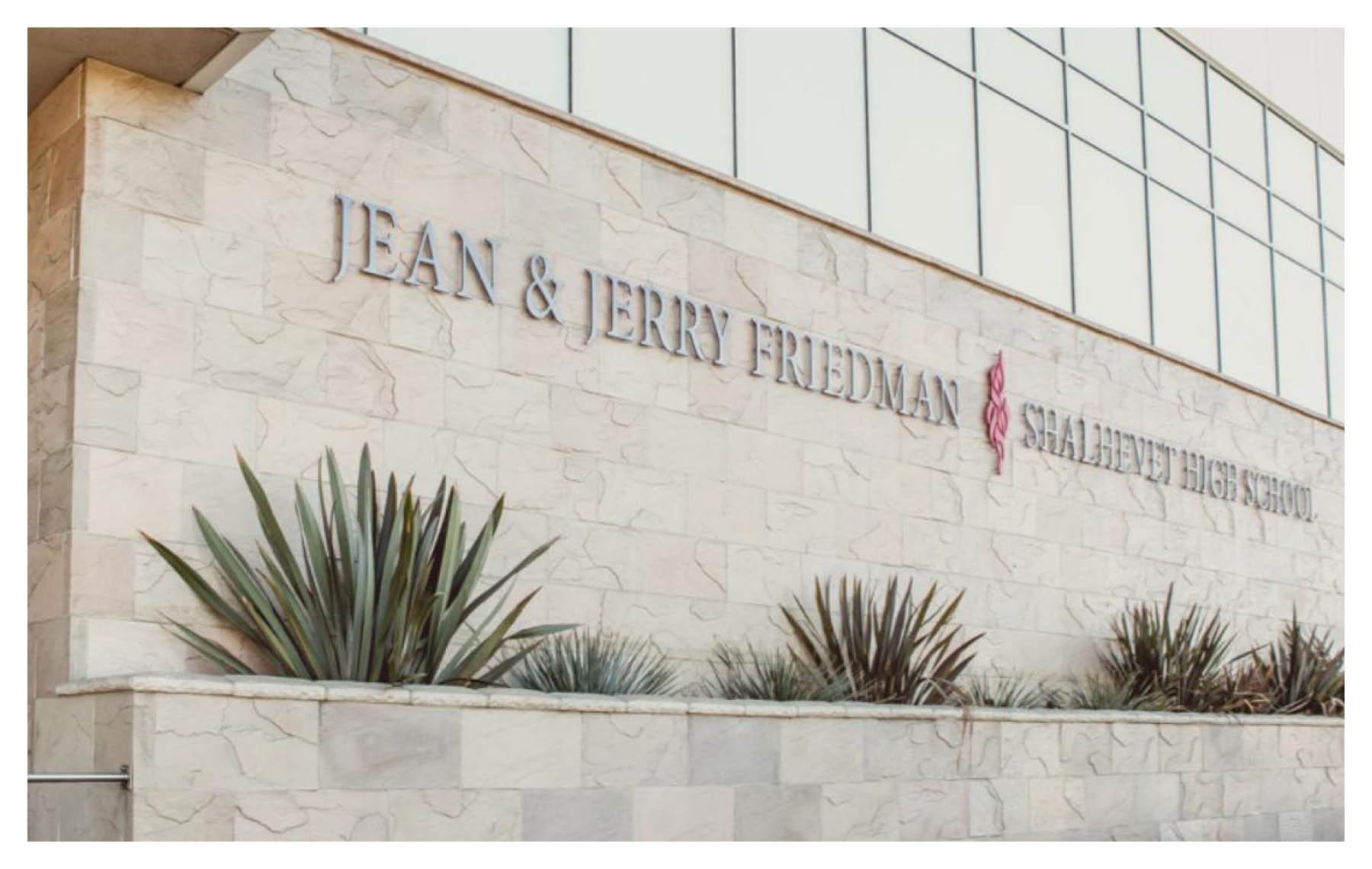
When Shalhevet High School welcomed students and families from around the country for its five-day Steve Glouberman Basketball Tournament beginning Oct. 31, Head of School Rabbi Ari Segal felt that, in the wake of the Tree of Life Congregation shootings in Pittsburgh, he needed to review security protocols — something he hadn’t done in the tournament’s three previous years.
“We wanted [everyone] to know that we’re continuing to follow the same vigorous security protocols we always have,” Segal said. “We let the students and their families know they could expect to see a heightened security atmosphere.”
Indeed, this year’s tournament introduced more bag checks, metal detectors, patrols and security personnel.
“The reality is we’ve been planning for something like what happened in Pittsburgh since I got here,” said Segal, who has been at Shalhevet for seven years. “As a Jewish school in 2018, it’s just a reality that you’ve got to be prepared.”
Schools, synagogues and other Jewish institutions across the city have been evaluating security measures after the Pittsburgh massacre. The prevailing sentiment is a sobering one — it could’ve been any of us.
“But I do think, here in Los Angeles, we’re one of the most prepared communities for this type of incident,” said Ivan Wolkind, the Jewish Federation of Greater Los Angeles’ chief operating and finance officer. “But that doesn’t mean we can’t do more or that we should stop thinking about security.”
“I do think here in Los Angeles we’re one of the most prepared communities for this type of incident, but that doesn’t mean we can’t do more or that we should stop thinking about security.” — Ivan Wolkind
Wolkind has an obsession about security that has made him an asset to many Jewish institutions across the city. Six years ago, Wolkind created the Federation’s Community Security Initiative (CSI) to address security needs of Los Angeles’ Jewish institutions. CSI employs experts with backgrounds in the U.S. military or the Israel Defense Forces and offers free site vulnerability assessments and security training to any of the 470 institutions in the Federation’s database.
“We’ve been [inundated] with phone calls both from law enforcement and community members, so I’m glad people know we’re the first place to go to,” Wolkind said. “The good news is many institutions want follow-up visits and more trainings. In very few cases are people in Los Angeles starting from nothing.”
Rabbi Joel Nickerson at Temple Isaiah in West Los Angeles, one of CSI’s partner institutions, said the temple’s facilities department and security company are “looking at and upgrading security systems, but our congregants aren’t overly concerned with their own security or worried about what we have in place here. But there is a heightened awareness that we welcome.”
When a security alert about a suspicious character in the community circulated recently on social media — with the help of Wolkind’s CSI initiative — many of Nickerson’s congregants contacted him.
“This was the first time that I didn’t receive [the information] from our security personnel first,” he said. “This proactive nature is a way we can try to look out for one another in our community. It was interesting and new, but we welcome it, of course.”
Mark Canole, who has been the director of security and safety at the Skirball Cultural Center for over 20 years, preached calm and didn’t advocate for wholesale security changes.
“The Skirball is continuing to maintain the policies and procedures that we’ve had in place,” Canole said. “This particular incident, although tragic, doesn’t really affect the day-to-day here. In other words, there’s no credible threat any more than there was last week.”
Canole is no stranger to dealing with threats. In August 2017, the Skirball received a robocall bomb threat. A few months later, Patriot Front, a far-right hate group, hung anti-Semitic banners from a nearby 405 Freeway overpass. More banner incidents followed earlier this year.
“Look, we can’t let these people win,” Canole said. “We have to make sure there’s a safe oasis to come to in these crazy times. People fear what they don’t know. That’s why a multicultural center like the Skirball is so important and needs to remain open and welcoming. The more people experience Jewish culture and come to know Jewish values, the better off everybody is.”






















 More news and opinions than at a Shabbat dinner, right in your inbox.
More news and opinions than at a Shabbat dinner, right in your inbox.